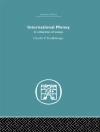Insolent proceedings brings together leading scholars working on the politics, religion and literature of the English Revolution. It embraces new approaches to the upheavals that occurred in the mid-seventeenth century, in daily life as well as in debates between parliamentarians, royalists and radicals. Driven by a determination to explore the dynamic course and consequences of the civil wars and Interregnum, contributors investigate the polemics, print culture and everyday practices of the revolutionary decades, in order to rethink the period’s ‘public politics’. This involves integrating national and local affairs, as well as ‘elite’ and ‘popular’ culture, and looking at the connections between everyday activism and ideological endeavours. The book also examines participation by – and the treatment of – women from all walks of life.
Table of Content
Preface: Ann Hughes as historian, friend and mentor – Peter Lake
Introduction: rethinking public politics in the English Revolution – Peter Lake and Jason Peacey
1 ‘Great conformitants’ and ‘right ambidexters’: puritans, conformity and the challenge of Laudianism – Anthony Milton
2 Killing (Catholic) officers no crime? The politics of religious violence in England in 1640 – John Walter
3 Anatomy of the General Rising: militancy and mobilisation in London, 1643 – David Como
4 ‘In the hollow of his wooden leg’: the transmission of civil war materials, 1642–9 – Karen Britland
5 Puritanism, parish and polemic in civil war London: the case of Thomas Bakewell – Elliot Vernon
6 William Walwyn’s Montaigne and the struggle for toleration in the English Revolution – David Loewenstein
7 An accursed family: the Scottish crisis and the Black Legend of the House of Stuart, 1650–2 – Thomas Cogswell
8 Indemnity, sovereignty and justice in the army debates of 1647 – Sean Kelsey
9 Milton and Winstanley: a conversation – Thomas N. Corns
10 Women, print and locality: Richard Culmer and the practices of polemic during the English Revolution – Jason Peacey
11 ‘Threshing among the people’: Ranters, Quakers and the revolutionary public sphere – Kate Peters
Index
About the author
Peter Lake is University Distinguished Professor of History at Vanderbilt University












